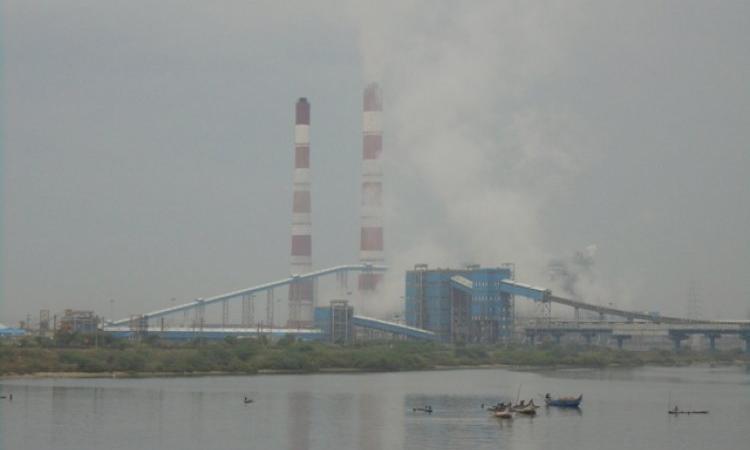
Activists stand against three proposed projects near Konkan coastline
Recently, the Maharashtra Government has announced three projects--a port which will also include a thermal power plant among other industries, the 9,900-MW Jaitapur nuclear power plant and one of the biggest oil refineries in the world-- in the ecologically-rich Konkan coastline. The projects are within a 50 km radius, and per environmentalists these projects will do more harm than good as they will have adverse impact on marine life in the region. Environmental scientist, Dr Madhav Gadgil, has suggested that doing individual analyses of these project will not help in understanding their adverse impacts, and an integrated study is a must.
Government unveils list of 20 cities to be developed as Smart Cities
Last week, the Ministry of Urban Development had announced 20 cities that will be turned into Smart Cities. Bhubnashewar emerged at the top followed by Pune, Ahmedabad, Kochi and NDMC. Under the Smart Cities Programme (which sounds like a technology-driven programme), the Government has assured the provision of basic facilities-- electricity and water supply, sanitation, efficient public transport, security, health and education-- to the public, as after 69 years of independence the citizens of India are still struggling for these.
Chennai floods: Poor drainage systems and dam overflow are to be blamed
Per an analysis of the Union Ministry of Earth Sciences, the severe flooding in Chennai was not caused only by the excessive rains alone, but also by the poor drainage system in the city and dam overflow. The study has also pointed out that the flooding could have been avoided if the disaster response of Tamil Nadu was quicker. Moreover, the flooding occurred despite the State and local authorities receiving three days advance warnings for excess rainfall and placing emergency planning response actions.
Government to approach overseas banks to raise Rs 86,000 crore funds for irrigation projects
As the country suffers cut in crop output due to two consecutive years of deficient rains, the Government plans to borrow Rs 86,000 crore from overseas banks to fund its irrigation projects. To help add 1.3 crore hectares of irrigated farmland, the Government may approach the World Bank, Asian Development Bank and state-owned overseas banks for loans with tenures of as much as 25 years. With these loans, the Government is aiming to make the country drought-proof in the next 10 years.
Jharkhand's waterman wins accolade for his contribution to water conservation
The Government has presented the Padma Shri award to Simon Oraon, better known as Jharkhand's waterman, for his contribution to environment conservation. Oraon is now 83 but started his battle against drought at the age of 28. His efforts to tap rainwater by digging wells, dug wells and ponds has led to Bedo block becoming the agricultural hub of Jharkhand. Apart from launching a massive tree plantation drive, Oraon has taught the art of environment conservation to residents of 51 villages. Till date he plants at least 1,000 saplings every year.
No pollution in Arunachal's rivers: CGWB, CWC
Per an investigation by the Central Ground Water Board (CGWB) and Central Water Commission (CWC), the major rivers in Arunachal Pradesh are free from pollution and there is no major water quality issue in the state except for localised occurrences of iron. Also, the groundwater is of excellent quality with all the parameters within permissible limits. However, with rapid urbanisation and increasing population in the State, this situation might change in the near future.
Andhra Government releases Rs 55 crore to seven Polavaram-affected villages
Under the Relief & Rehabilitation (R&R) package, the State Government has released a sum of Rs 55 crore to the people of seven villages of East Godavari district coming under the Polavaram Irrigation project area. The Government is firm on the project and is all set to speed up the process of its construction. The multi-purpose project is likely to displace over 1.88 lakh people across 222 villages and so far, 1,730 persons in six villages have been rehabilitated.
YES Bank commits to set up water purification systems at 1,000 railway stations
With an aim to make safe and clean drinking water accessible to everyone, YES Bank has committed to the Indian Railways to set up community water purification systems at 1,000 railway stations across India over the next three years. The initiative will only focus on the ‘D’ and ‘E’ category railway stations (those with lower footfals and lesser earnings). The first phase will aim to provide access to safe and clean drinking water at 100 railway stations of these categories, primarily in the Konkan region.
This is a roundup of important news updates from January 26 - February 8, 2016. Also read last week's policy matters update.
/articles/environmentalists-protest-proposed-projects-near-konkan-coastline